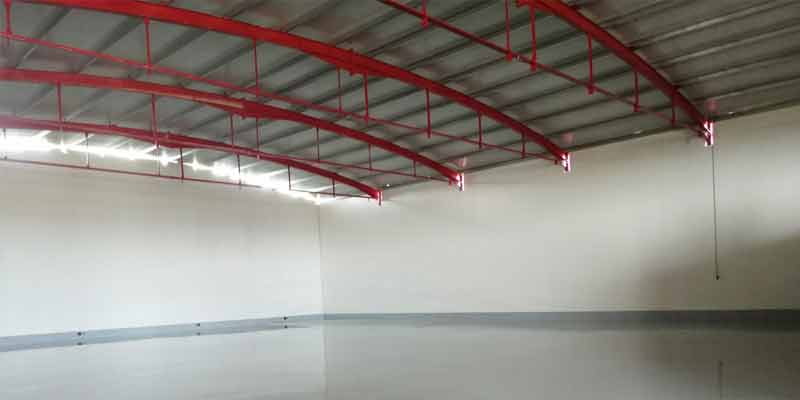
Many people don't realize that there are different epoxy flooring thickness levels. The thickness level you need depends on the type of epoxy and the purpose of the floor. In this article, we'll show you how to determine which epoxy flooring thickness level is right for your needs.
There are three main types of epoxy: water-based, solvent-based, and 100% solid. Water-based epoxy is the most common type used for residential and commercial applications. It's less expensive than other types of epoxy, and it's easy to apply.
Solvent-based epoxy is more expensive than water-based, but it's more durable and has a higher resistance to chemicals and staining.
100% solid epoxy is the most expensive type of epoxy, but it's also the most durable. It has a higher resistance to chemicals, staining, and UV light.
The thickness level of epoxy flooring is measured in mils (thousandths of an inch). The most common thickness levels are 2, 3, and 4 mils.
2 mils: This is the thinnest layer of epoxy, and it's typically used for residential applications.
3 mils: This is the standard thickness for commercial and industrial applications.
4 mils: This is the thickest layer of epoxy, and it's typically used for industrial applications where there's a lot of foot traffic or heavy equipment.
The type of epoxy and the floor's intended use are the two main factors that determine which thickness level you need.
If you're using water-based epoxy for a residential application, 2 mils are typically sufficient. For commercial and industrial applications, 3 mils are the standard thickness. And for floors that will see a lot of foot traffic or heavy equipment, 4 mils is recommended.
Keep in mind that the thicker the layer of epoxy, the more expensive it will be. So, if you're on a tight budget, you may want to opt for a thinner layer of epoxy.
The thickness of your epoxy flooring is an important factor to consider when choosing the right floor for your needs. Water-based epoxy is the most common type used for residential and commercial applications, and it comes in different thickness levels.
The type of epoxy and the floor's intended use are the two main factors that determine which thickness level you need. So, be sure to keep these things in mind when selecting the right epoxy flooring for your home or business.
You should also consult with a professional flooring contractor to get expert advice on which epoxy flooring thickness level is right for your project. They can help you choose the right epoxy and thickness level based on your specific needs.
If you install epoxy flooring that's too thick, it may not cure properly. This can cause the floor to become sticky or tacky, and it may not be as durable as a properly cured floor.
If you install epoxy flooring that's too thin, it may not provide the desired level of protection or durability. So, be sure to select the right thickness for your needs.
Installing epoxy flooring is a big investment, so be sure to consult with a professional before starting your project. They can help you choose the right epoxy and thickness level based on your specific needs. With their help, you can ensure that your epoxy flooring is installed correctly and that it will last for many years to come.
Installing epoxy flooring is a big investment, and it's important to do it right. If you don't have experience installing epoxy floors, it's best to leave it to the professionals.
There are a few risks associated with DIY epoxy flooring installation, including:
- Applying the epoxy too thick or too thin
- Not allowing the epoxy to cure properly
- Damaging the floor during installation
These risks can be avoided by hiring a professional flooring contractor to install your epoxy floor. They have the experience and expertise to ensure that your floor is installed correctly and that it will last for many years to come.
On average, the costs to fix DIY epoxy mistakes can range from $500 to $1,500. So, it's best to avoid these mistakes by hiring a professional to install your epoxy floor.
When it comes to installing epoxy flooring, it's important to hire a reputable contractor.
There are a few things to keep in mind when searching for a reputable epoxy contractor, including:
- Make sure the contractor is licensed and insured
- Ask for referrals from friends or family
- Read online reviews
- Get multiple estimates
While it may be tempting to install epoxy flooring yourself, it's best to leave it to the professionals. Hiring a reputable contractor is the best way to ensure that your floor is installed correctly and that it will last for many years.
If you're looking for a reputable epoxy contractor in your area, be sure to contact our team of dedicated epoxy experts. We are a licensed and insured flooring contractor with many years of experience installing epoxy floors. We offer free estimates, so you can get an idea of what it will cost to install an epoxy floor in your home or business. Give us a call today to learn more about our services!